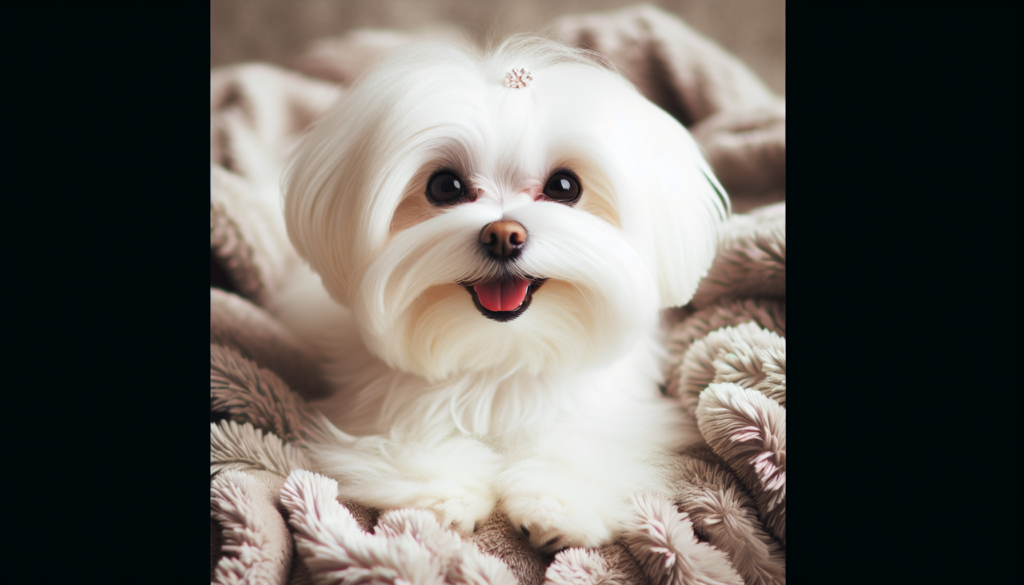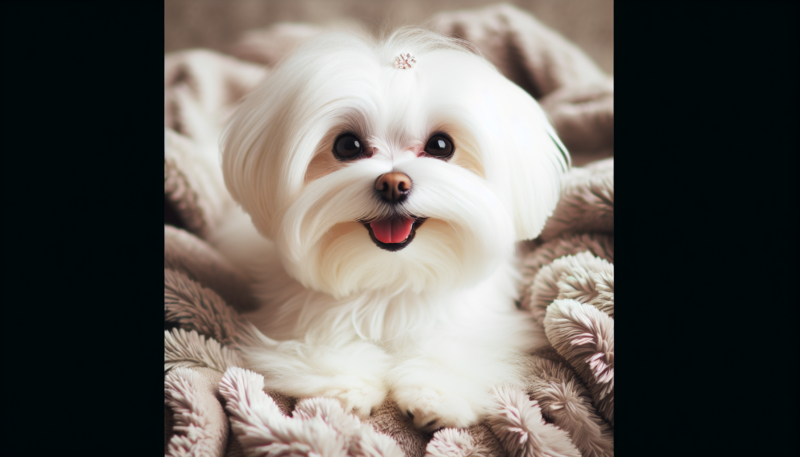So, you’re considering getting a furry companion, and you’ve had your eye on the adorable and elegant Maltese dog breed. Well, before you make your final decision, let’s take a moment to explore the pros and cons of owning a Maltese dog. With their silky white coats and friendly personalities, these delightful little creatures surely have their charms. However, like any other pet, they come with their own set of advantages and disadvantages that you should be aware of. So, let’s delve into the world of Maltese dogs together and discover whether these pint-sized pooches are the perfect fit for you.
Pros of Owning a Maltese Dog
Loving and Affectionate Nature
One of the major benefits of owning a Maltese dog is their loving and affectionate nature. These dogs are known for forming strong bonds with their owners and showering them with unconditional love and affection. They thrive on human companionship and are always eager to please their owners. Whether you’re having a bad day or experiencing a rough patch in life, having a Maltese by your side can provide comfort and emotional support like no other.
Low Exercise Needs
If you’re looking for a dog that doesn’t require excessive exercise, then the Maltese is the perfect choice for you. These small and delicate dogs don’t demand long walks or strenuous physical activities. A short daily walk and some playtime indoors or in a fenced yard are usually enough to keep them content and physically stimulated. This makes them a great option for individuals or families with a more laid-back lifestyle or those living in apartments or small spaces.
Hypoallergenic Coat
For individuals who suffer from allergies, the Maltese dog breed can be a lifesaver. Their hypoallergenic coat produces significantly less dander compared to other breeds, making them suitable for people with allergies. This is because they have hair instead of fur, which reduces the amount of shedding and allergen exposure. With a Maltese, you can enjoy the company of a furry friend without constantly sneezing or dealing with allergic reactions.
Long Lifespan
When you bring a Maltese into your life, you’re not just getting a loving companion, but also a companion that will be with you for a long time. These dogs have an average lifespan of 12-15 years, which is relatively long compared to other small dog breeds. With proper care, a nutritious diet, and regular veterinary check-ups, your Maltese can be by your side for many joyful years, providing constant love and companionship.
Good with Children
Maltese dogs are generally known for being great with children, making them an excellent choice for families. They have a gentle and friendly nature, and their small size makes them less intimidating for young children. Maltese dogs are patient and tolerant, and they often enjoy playing with kids. However, it is essential to teach children how to interact appropriately with dogs to ensure a safe and enjoyable environment for both the dog and the child.
Intelligent and Easy to Train
If you’re looking for a dog that is intelligent and easy to train, then the Maltese is a fantastic option. These dogs are highly intelligent and enjoy learning new tricks and commands. They are eager to please their owners, which makes training them a breeze. With positive reinforcement techniques and consistency, you can teach your Maltese various commands and even participate in dog sports such as obedience or agility. Their intelligence and willingness to learn make them a delight to train and interact with.
Portability and Adaptability
The small size of Maltese dogs makes them incredibly portable and adaptable to various living situations. Whether you live in a house with a backyard or a small apartment, these dogs can easily adjust to their surroundings. Their portability makes them ideal travel companions, as they can accompany you on trips without any hassle. Whether you’re going to the park or embarking on a long journey, a Maltese can be your trusty sidekick, ready for any adventure.
Minimal Grooming
Despite their luxurious coats, Maltese dogs surprisingly have minimal grooming requirements. While their coats are long and silky, they don’t have an undercoat, which reduces shedding and the need for constant brushing. However, their coats do require regular upkeep to prevent mats and tangles. Regular brushing, bathing every few weeks, and occasional visits to a professional groomer to maintain their coat’s length and cleanliness should suffice. The minimal grooming needs of the Maltese make them a practical choice for those who don’t have much time or resources for extensive grooming.
Great Companionship
One of the foremost reasons people choose to have a dog as a pet is for the companionship they offer, and Maltese dogs excel in this aspect. These dogs are incredibly affectionate, loyal, and devoted to their owners. Whether you’re spending a quiet evening at home or going on an outdoor adventure, your Maltese will be your constant companion, always ready to offer love and support. Their companionship can greatly enhance your life and provide you with a deep sense of connection and happiness.
Good for Apartments or Small Spaces
Living in an apartment or a small space doesn’t mean you can’t enjoy the joys of having a dog. Maltese dogs are well-suited for apartment living due to their small size and low exercise requirements. They don’t need a large yard to roam around and are generally quiet dogs, making them a favorable choice for individuals living in close quarters with neighbors. Their adaptability and ability to thrive in small spaces make them a popular breed for urban dwellers looking for a furry companion.

Cons of Owning a Maltese Dog
Potential for Separation Anxiety
While Maltese dogs crave human companionship, they can be prone to separation anxiety if left alone for long periods. They form strong bonds with their owners and can become anxious or distressed when left alone for extended periods. This can lead to behaviors such as excessive barking, chewing, or destructive behavior. If you have a busy lifestyle or are away from home frequently, it is crucial to take proper measures to prevent separation anxiety in your Maltese, such as providing interactive toys, crate training, or seeking the assistance of a professional dog trainer.
Prone to Dental Problems
Maltese dogs are known to be prone to dental problems, including tooth decay, gum disease, and tooth loss. Their small mouths and crowded teeth create an environment where plaque and tartar can easily accumulate, leading to dental issues. Regular dental care, such as brushing your Maltese’s teeth daily, providing dental chews, and scheduling professional dental cleanings, is essential to maintain their oral health. Neglecting their dental care can result in pain, discomfort, and potential health complications.
Frequent Bathing Requirements
Due to their white and silky coats, Maltese dogs require frequent bathing to keep their fur clean and in optimal condition. Their coats can quickly become dirty, stained, or develop an odor, necessitating regular grooming. However, excessive bathing can strip their coat of its natural oils, leading to dryness and skin irritations. It is important to strike a balance and use high-quality, gentle dog shampoos, along with proper drying techniques, to maintain the health and beauty of your Maltese’s coat.
High Maintenance Coat
While the long and luxurious coat of a Maltese is undeniably beautiful, it does come with some maintenance requirements. Their coats can easily tangle and matt, especially if not properly cared for. Regular brushing and combing are necessary to prevent matting and keep their coat looking pristine. Additionally, frequent visits to a professional groomer may be required to trim their coat or keep it at a manageable length. If you’re not willing to invest time, effort, and money into maintaining their coat, a Maltese may not be the right breed for you.
Possible Behavior Problems
Maltese dogs can sometimes exhibit behavior problems if not properly trained and socialized. Due to their small size, they may develop small dog syndrome if allowed to become overly dominant or spoiled. They may become possessive or territorial, leading to issues with aggression or resource guarding. Early socialization and consistent, positive training can help prevent or address these behavior problems. Seeking the guidance of a professional dog trainer or enrolling your Maltese in obedience classes can contribute to a well-behaved and well-adjusted dog.
Sensitivity to Temperature
The Maltese breed is known for its sensitivity to temperature extremes. Their small size and lack of an insulating undercoat make them particularly susceptible to both cold and hot weather. In colder temperatures, it is essential to provide them with suitable clothing and limit their exposure to chilly environments. In hot weather, they may be prone to heatstroke or heat exhaustion if not adequately protected and provided with shade and water. It is important to exercise caution and ensure your Maltese is comfortable and safe in all weather conditions.
Health Issues Related to Size
Being a small dog breed, Maltese dogs are more prone to certain health issues related to their size. They may be susceptible to dental problems, as mentioned earlier, as well as orthopedic issues such as luxating patella (dislocation of the kneecap) or hip dysplasia. Additionally, they are more susceptible to injury due to their fragility. Regular veterinary check-ups and preventive care can help detect and address any potential health issues before they become severe.
May Not Get Along with Other Pets
While many Maltese dogs are sociable and get along well with other pets, there can be instances where they have difficulty accepting or coexisting with other animals. Their strong attachment to their owners and potential possessiveness can lead to issues with sharing attention or resources with other pets in the household. Proper introductions, positive reinforcement training, and separate feeding areas can help mitigate any potential conflicts and ensure a harmonious living environment for all pets involved.
Active Barking Tendency
Maltese dogs have a tendency to be active barkers, and this can become a nuisance if not properly managed. They have a naturally alert nature and can be quick to bark at any perceived threat or unfamiliar sounds. While this can be beneficial in alerting their owners to potential dangers, it can also result in excessive noise, especially in a residential setting. Early training and positive reinforcement techniques can help teach your Maltese to control their barking and respond to appropriate cues, ensuring a peaceful living environment for both you and your neighbors.
Needs Socialization and Training
As with any dog breed, socialization and training are essential for a well-rounded and well-behaved Maltese. Due to their small size and potential susceptibility to behavior problems, early socialization is crucial to ensure they are comfortable and confident in various environments and with different people and animals. Positive reinforcement training methods, including obedience training and basic commands, are important to establish a strong bond and ensure your Maltese understands what behavior is expected of them. Investing time and effort into proper socialization and training can greatly contribute to a happy and harmonious relationship between you and your Maltese.
